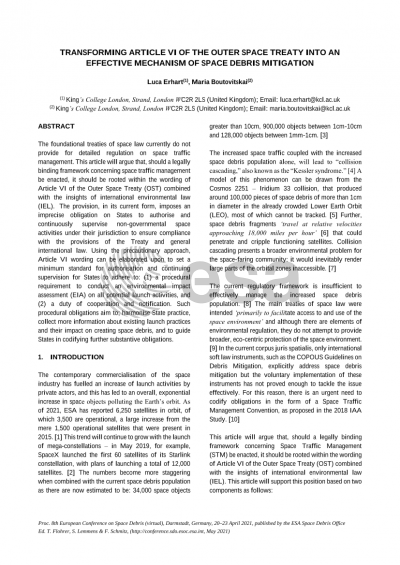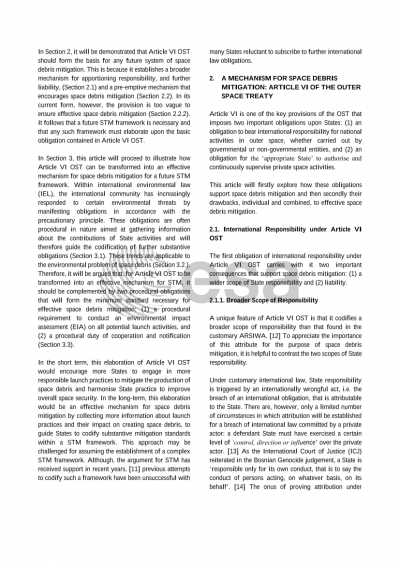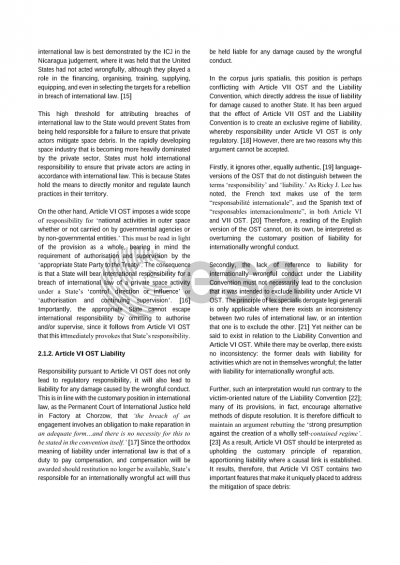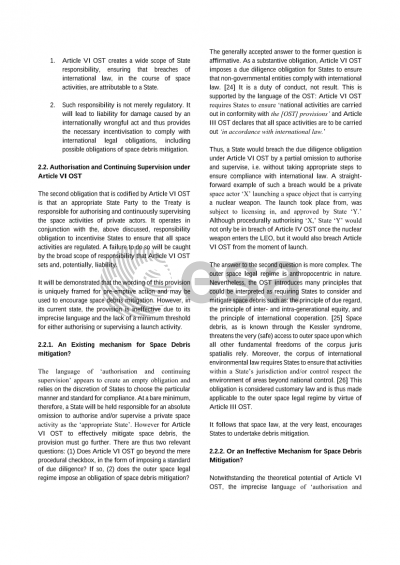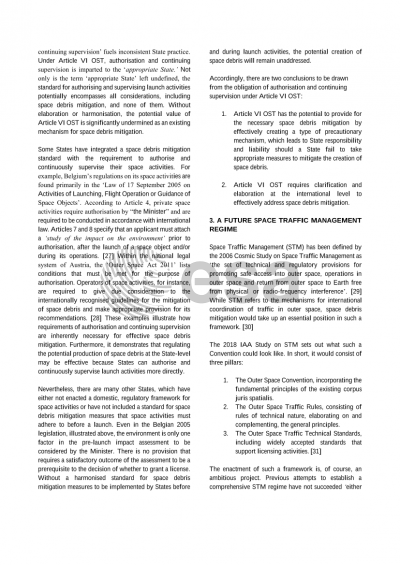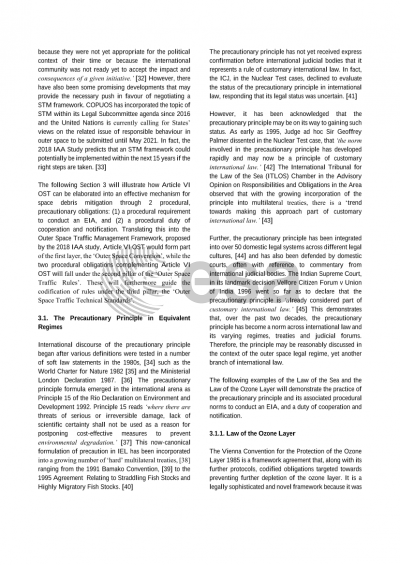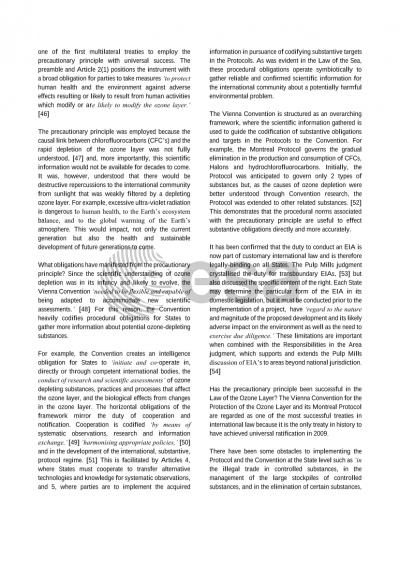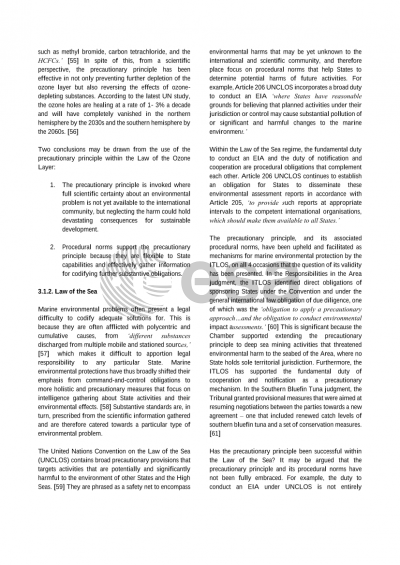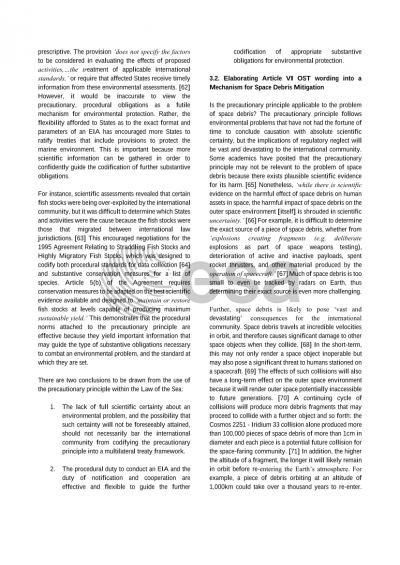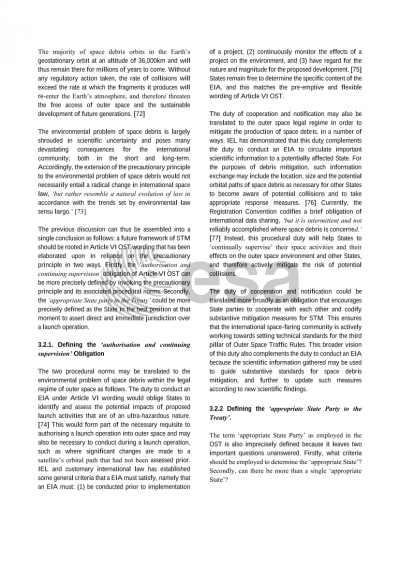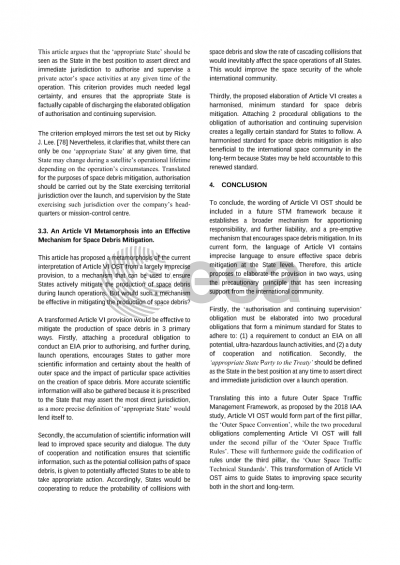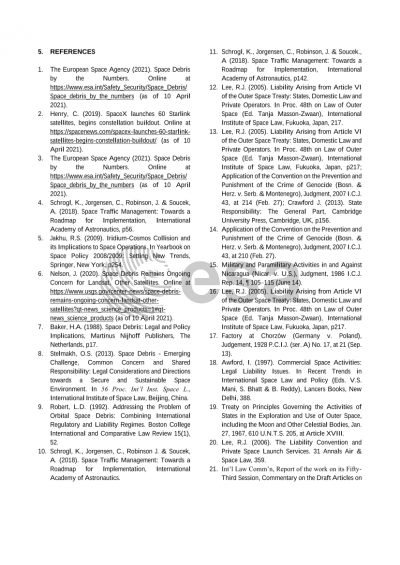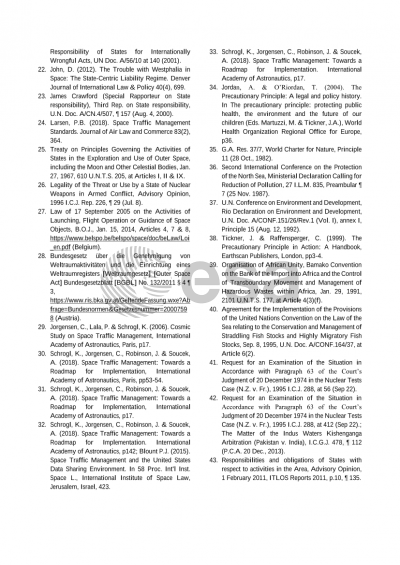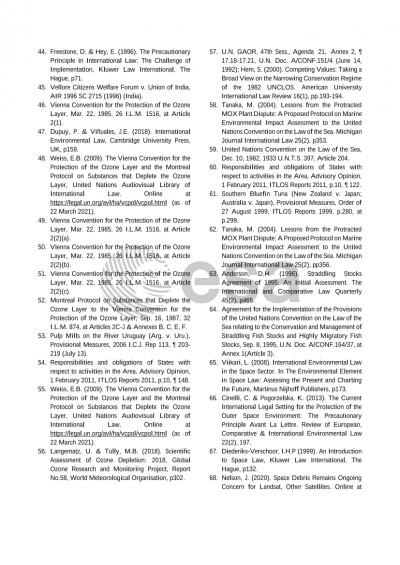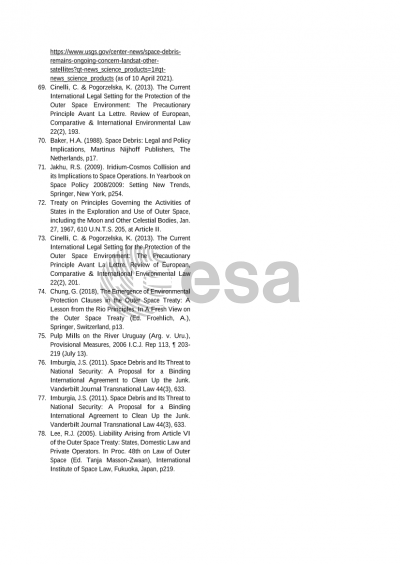Document details

Abstract
With the exponential increase in launch activities in space leading our space-faring nations into a Kessler syndrome descent, it is a surprise that no internationally binding space traffic management framework exists to protect the safety, stability and sustainability of space activities. The drafters of the foundational treaties, in fact, proceeded negotiations to codify a set of fundamental freedoms in outer space, not to provide for detailed regulation on space traffic. Article VI of the Outer Space Treaty (OST) is reflective of this. The provision imposes an obligation on States to authorise and continuously supervise non-governmental space activities under their jurisdiction, to ensure that they comply with the provisions of the Treaty and standards of general international law. However, Article VI OST remains too imprecise to create an effective standard of space debris mitigation, pursuant to the ‘due regard principle’ in Article IX OST and the fundamental freedoms of Article I OST. This is because Article VI OST leaves open the threshold for authorisation and supervision, leaving this to the discretion of States. In practice, States regularly fail to exercise their discretion to set safety conditions and put into place an effective collaborative system to prevent collisions, and thus the creation of space debris.
This article will firstly argue that, should a legally binding framework concerning space traffic management be enacted, it should be rooted within the wording of Article VI OST, but the provision must be elaborated upon using insights from international environmental law. The pre-emptive wording of Article VI OST supports the implementation of space debris mitigation measures that would uphold the fundamental freedoms of the foundational treaties. Therefore, with elaboration, Article VI OST can be used to place international responsibility on States to ensure compliance with a harmonised, minimum standard of space debris mitigation.
How must Article VI OST be elaborated upon to address space debris mitigation? This article will secondly argue that this minimum standard for authorisation and continuing supervision should include: (1) a procedural duty of cooperation and notification, and (2) a procedural requirement to conduct an environmental impact assessment on all potential launch activities. This would encourage States to bring environmental considerations within their remit but would also permit States enough flexibility and discretion to match the language of Article VI OST. To reach this conclusion, this article will draw on the trend within international environmental law of operating under the impression of the precautionary principle where both the environment and other sovereign rights are threatened. In practice, the precautionary principle guides States to conduct careful evaluation and cooperate to exchange information, which translates into procedural obligations. Both the procedural duty of cooperation and notification and the duty to conduct an environmental impact assessment have been regularly codified, and have gained customary standing in the International Court of Justice within equivalent treaty regimes - not only against the rights of other States but also in areas beyond national jurisdiction. This elaboration of Article VI OST for the purposes of space debris mitigation aims to; improve space security, harmonise State practice, collect more information about existing launch practices and their impact on creating space debris, and to guide States in codifying further substantive obligations.
Preview
